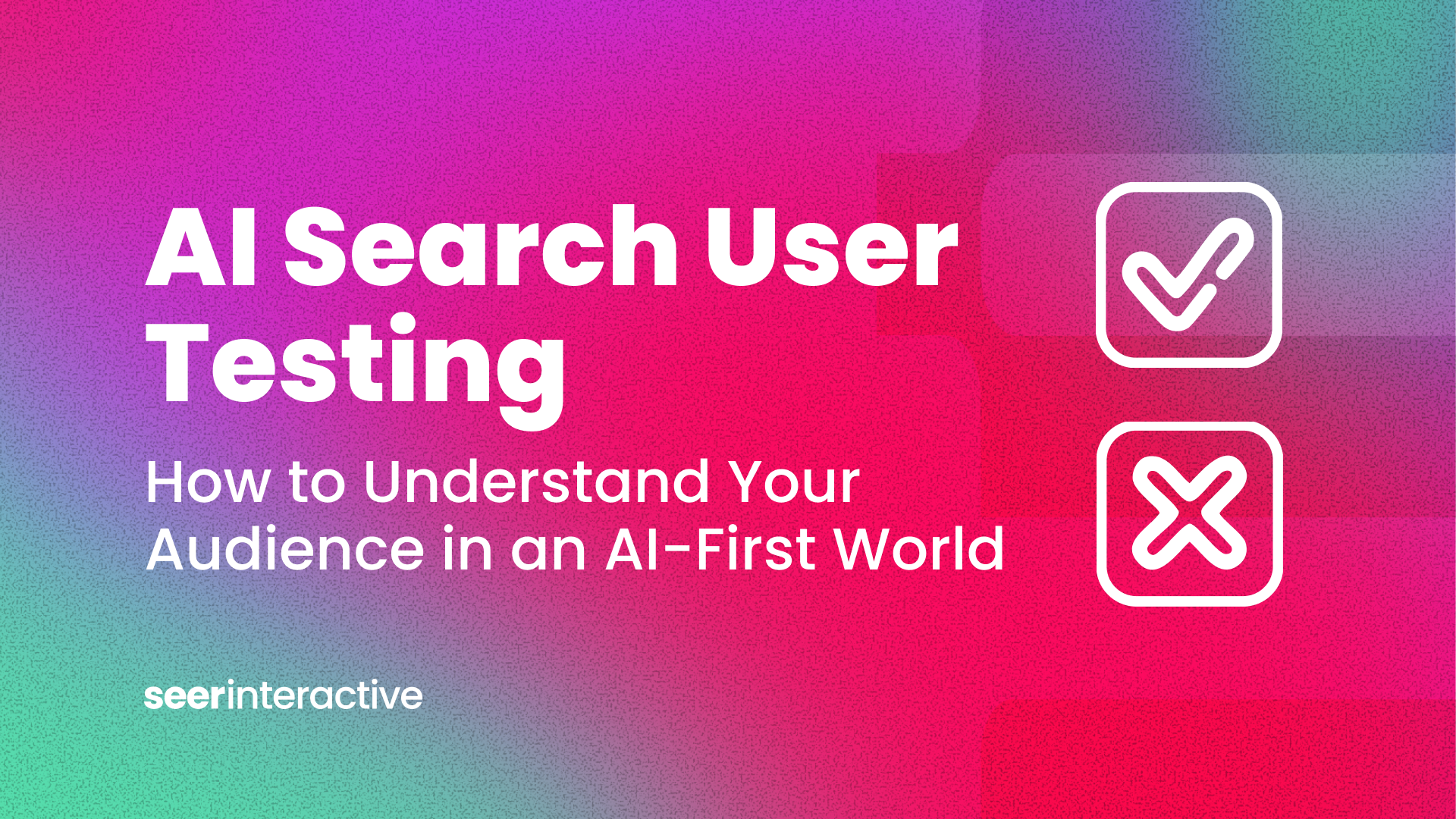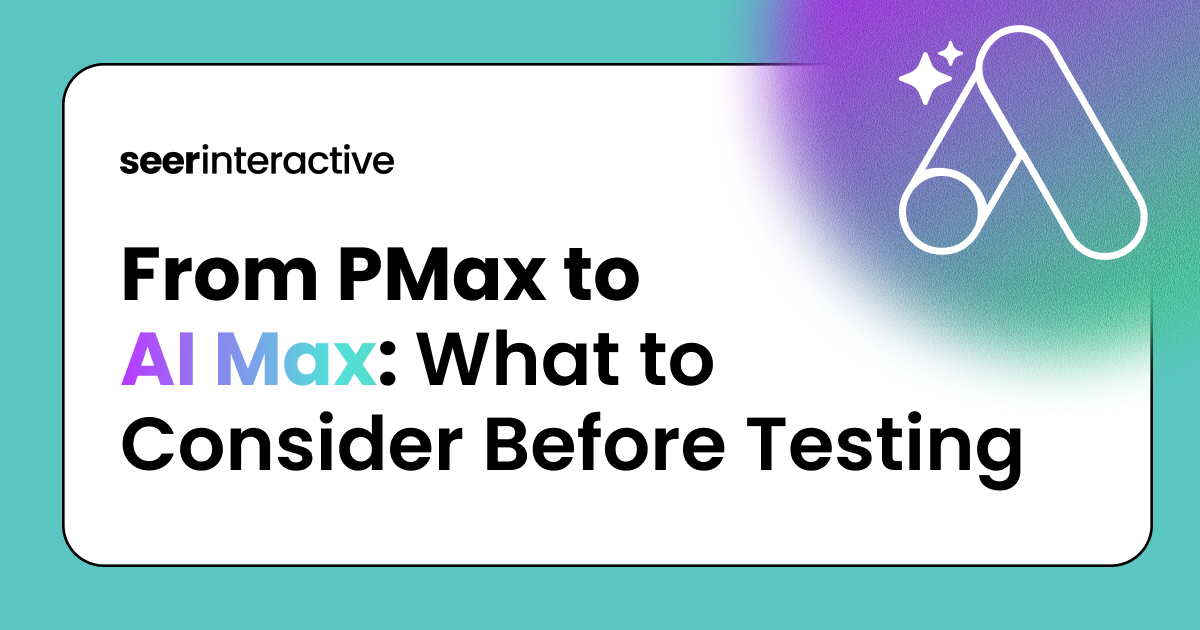I've been having a lot of convos at Seer over the past year that all start with the same question: Why isn't Google winning at AI? They have the data, the money, the talent, AND they invented many of the critical breakthroughs that got us where we are today. Yet, they aren't winning in AI. Why?
Is Google “too big to succeed” in AI?
Organizational dysfunction is probably the biggest negative byproduct of their approach to market dominance. On one hand, it's hard to position Google's global presence as anything other than wildly successful. On the other hand, their path to power is paved with many ruthless decisions, acquiring countless products and organizations only to shut them down or haphazardly bury them within the business.
I can’t imagine the layers of complexity involved in trying to identify how and where to fit all of the M&A investments within Google as an organization. Individuals, teams, products, and organizations all contain multitudes, and organization methodology is subjective. In other words, there’s no “right” way to do it. Google must have realized this long ago and as a result, decided not to spend too much time worried about getting it “right.”
Their playbook was messy but worked for many of Google's cash cows. It won't work for AI. AI is moving too fast due to competitors combining brilliant, lean teams with billions in funding. Google has billions, but they are far from lean. Time for a new approach.
Yesterday's announcement from Sundar Pichai can change all of that.
Let’s pause to reflect on the past 12 months
In April of 2023, Google & Alphabet’s CEO Sundar Pichai announced they'd merged their Brain team from Google Research and their DeepMind team. Since then, we have heard a steady stream of quiet grumbles about how things aren't going so well. Most recently Demis Hassabis was described as "chafed" by the Information. Whispers around a desire to exit were circulated. And yet, if you stop to consider where Google was this time last year, you’d find they’ve grown leaps and bounds.
Google isn’t leading the pack yet, but Gemini 1.5 is a GPT-4 class model. We’ve come a long way since their less-than-impressive Bard and Duet offerings. Google’s recent Next event illustrated the most cohesive vision to date of where within the vast AI space they plan to settle in: by integrating their offering into the tools their customers are using today.
This will be a new playbook for Google. Creating a cohesive user experience across their products has never been a strength. At the same time, with their current market share across search, cloud computing, mobile, and more - there has never been a more opportune time to figure it out.
Fast forward to April 2024. Almost exactly one year later, Pichai is back to announce more changes. His announcement is worth reading in full here, but I’ve summarized the major changes below.
- Further consolidation of Google Research teams: All teams (previously in Google Research) that focus on building models will now sit in Google DeepMind. This likely should have happened sooner, but the fact that it’s happening now is what matters.
- Improved focus for Google Research: All of Google Research’s work will focus on computing systems, foundational ML and algorithms, and applied science & society. I’d imagine it’s hard to think about the future of computer science less anything related to AI, but ultimately focus is critical to all R&D.
- Moving Responsible AI from Research to Google DeepMind: Responsibility & safety are core to Google’s vision for AI. To me this feels akin to moving the Quality Assurance team to sit right next to the conveyor belt, if previously they were craning their necks to see what was happening from 50 feet away. A good move, but one certain to ruffle feathers.
-
- Increased clarity of responsibility and accountability for AI testing and evals at every level. When something is everyone’s responsibility, it’s no one’s responsibility. There are so many layers to testing and evaluating AI, we likely haven’t discovered the best approach yet. Until then, a new RACI should help.
-
- Standardizing launch requirements for AI-powered features, including more ‘red team’ testing: I’ll file this under “the stars are just like us,” as anyone testing innovation with AI knows that the process is a far cry from standard software deployment. One big advantage (and perhaps part of the plan all along?) is that Google has had a handful of teams running independently for the past year. Time for a show and tell so they can Frankenstein together the best approach.
- Merging DSPA (Devices and Services Product Area) teams with the P&E (Platforms and Ecosystems) teams to create a new Platforms & Devices team: Computing platforms are a key area Google can push their AI integration mission into existing owned market. Chrome, Pixel, Android teams will all work under “the same roof” for the first time. Things will be bumpy and grumpy but ultimately this is likely the path that takes Google the farthest.
Pichai closes his memo with a statement that I feel compelled to include verbatim, highlighting the sections that made me raise my eyebrows most:
“One final note: All of the changes referenced above will help us work with greater focus and clarity towards our mission. However, we also need to be more focused in how we work, collaborate, discuss and even disagree. We have a culture of vibrant, open discussion that enables us to create amazing products and turn great ideas into action. That's important to preserve. But ultimately we are a workplace and our policies and expectations are clear: this is a business, and not a place to act in a way that disrupts coworkers or makes them feel unsafe, to attempt to use the company as a personal platform, or to fight over disruptive issues or debate politics. This is too important a moment as a company for us to be distracted.
We have a duty to be an objective and trusted provider of information that serves all of our users globally. When we come to work, our goal is to organize the world’s information and make it universally accessible and useful. That supersedes everything else and I expect us to act with a focus that reflects that.”
To me, the message is a clear warning, perhaps directly to those who have been feeling “chafed” lately: Dad is mad. It’s time to stop acting out and get back to work.
Hypothesizing into 2025… where will Google AI be one year from now?
These changes are potentially monumental, and I think it would be fair to say that the stakes couldn’t be higher for Pichai professionally. If next year these bets pay off, I wonder what the tech landscape might look like? Here are some guesses:
- Google AI rivals Apple AI? This time next year there will be a clear winner in the field of “AI Assitant that sits in your pocket.” As of now, Apple is most poised to win. They have been quiet about their work with AI but the clues we have seen (reorganizing their autonomous car division into their AI team, releasing research on a potentially GPT-4 class model) are promising. Google’s only chance to do so is with this newly formed P&D team
- Google Gemini’s next iteration matches GPT-5 within 2024? Much ado has been made about how impressive, groundbreaking, and awe-inspiring GPT-5 will be. There’s very little chance Google is first to market with the next “oh shit” moment in AI. But with this reorganization, Google gives themselves a very good opportunity to catch up to GPT-5 quickly upon its release.
- Who is actually winning the long game? Google’s bet on integrating AI into the products people use today is an important one. OpenAI’s game has felt a bit like checkers over the past year. They’ve been quick to news jack AI achievements by dropping their new products, or clap back at competitors rising in the ‘LLM leaderboards’ with a freshly tuned model. That’s been fun to watch, but Google may be playing chess right now. This time next year they may not have “the best” AI on the planet, but they very likely will have the most used.


